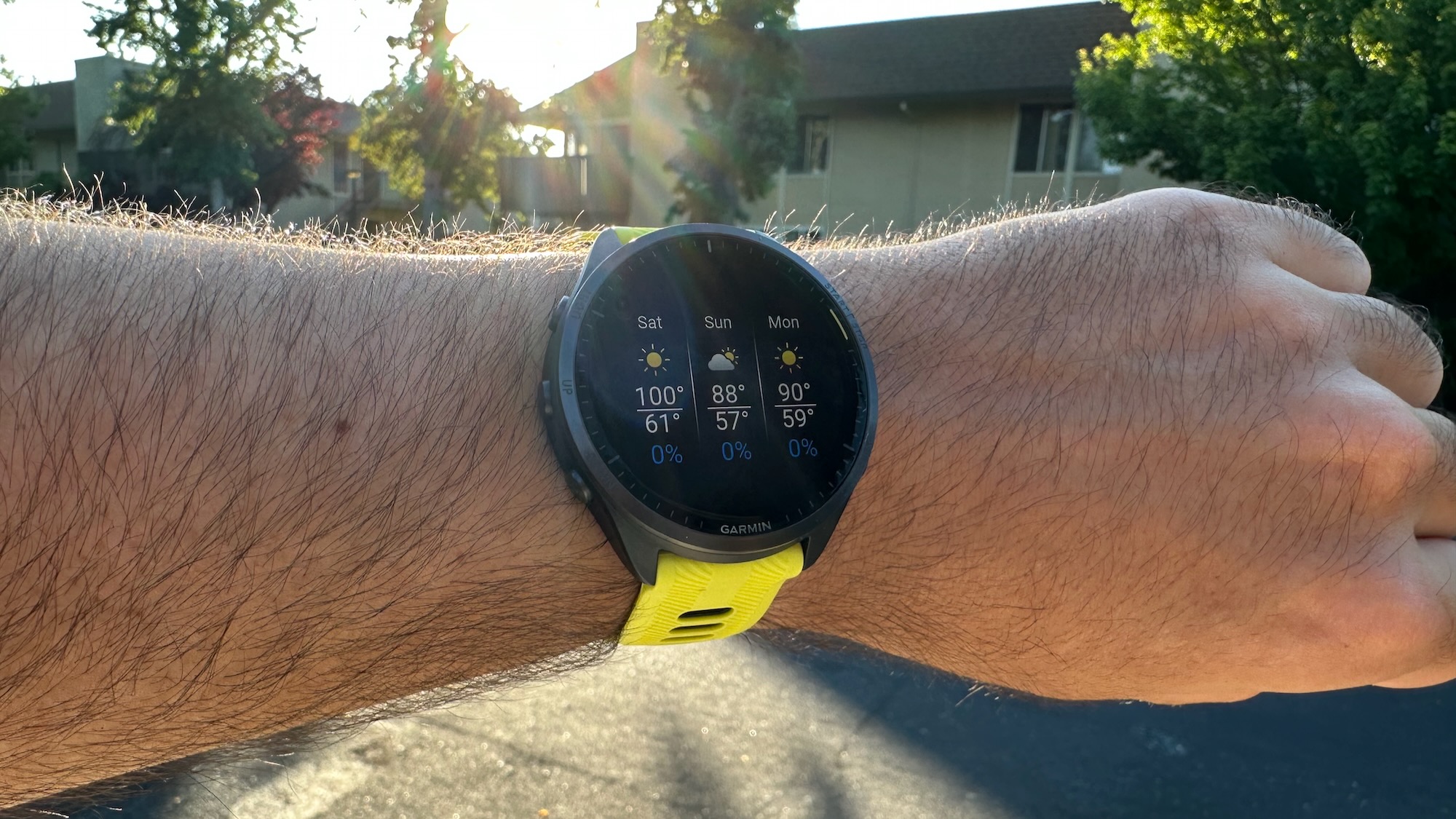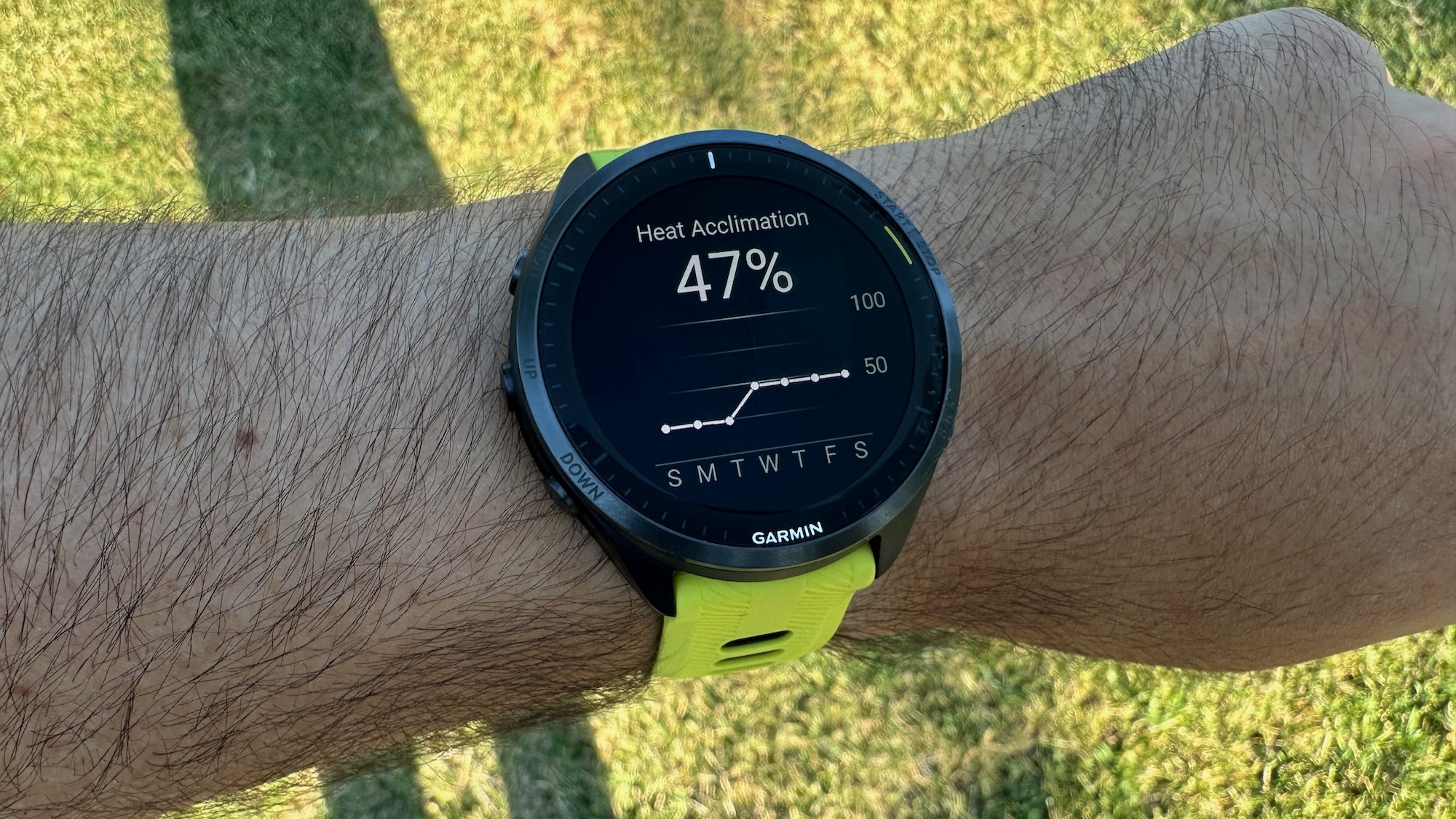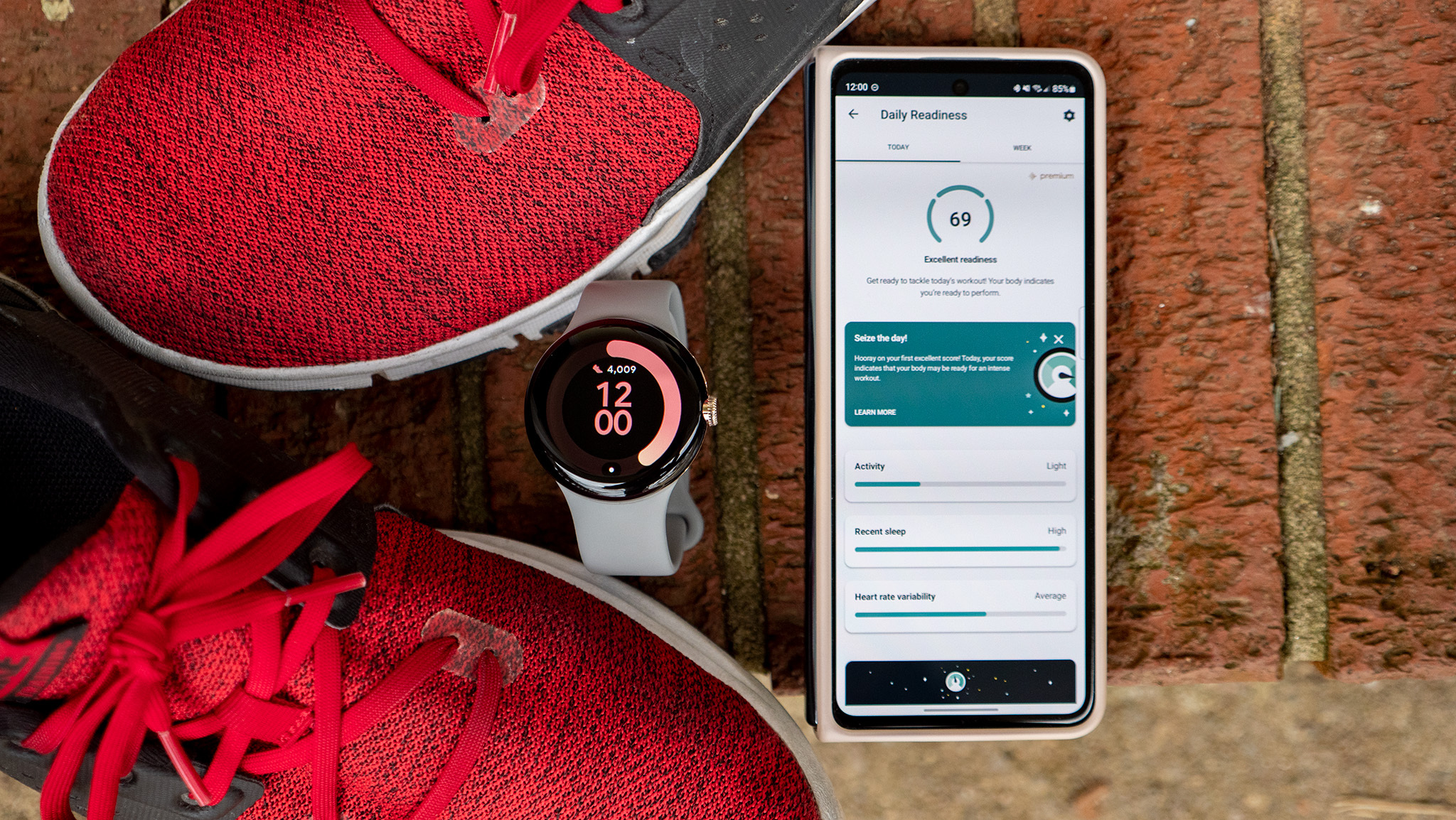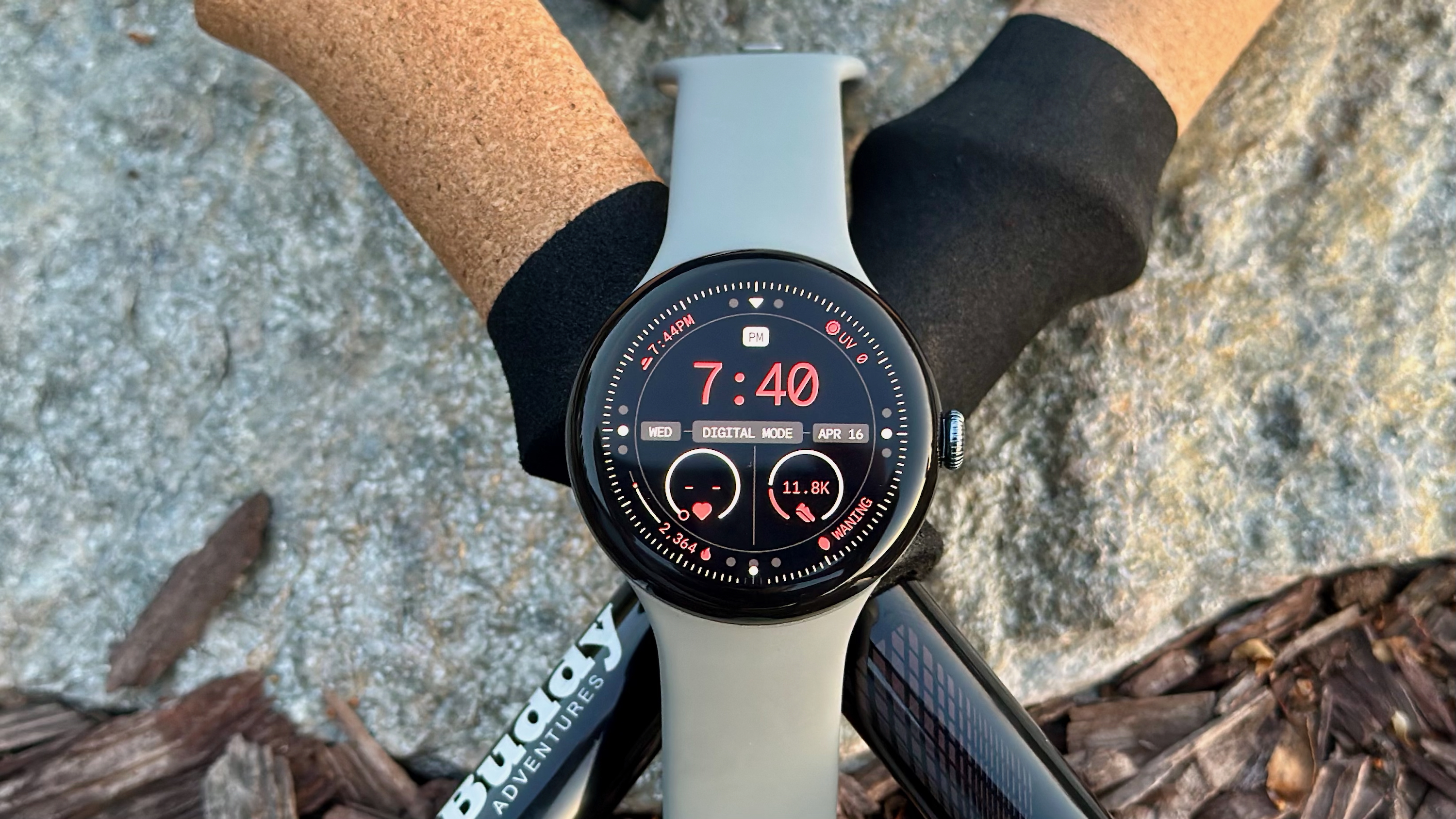I’m sick of fitness watches guilting me into poor life choices
Is it too hot to exercise? Probably. Does your watch adjust your step or move goals accordingly? Of course not!

As I write this column, the Garmin watch on my wrist is telling me I've "moderately" recovered from my last run and recommends I do a sprint training workout mixed in with 30 minutes of light running before and after. Nearly an hour in total. Meanwhile, my partner's Apple Watch is bugging her to hurry up and close her rings. Maybe it's time to go for a walk?
It's currently 103ºF outside. Nearly 40ºC for the metric folks out there.
My watch is "aware" of this. It showed up in my watch's Morning Report and on the little weather widget on my watch face. But the algorithm that determines how many steps I should take or miles I should run is unaware or unsympathetic. The same applies to any other fitness smartwatch with daily goals, step streaks, and so on.

In his new weekly column, Android Central Fitness Editor Michael Hicks talks about the world of wearables, apps, and overall fitness tech related to running and health.
I'm currently testing the Garmin Forerunner 965 for a review, and aside from its predecessor (the Forerunner 955), it's the only watch I've tested with a "heat acclimation" stat that tells you how well you're adapting to warmer temperatures, and supposedly adjusts your VO2 Max estimate and training readiness accordingly.
But even though it says I've only climbed to 48% acclimated, the watch wants me to go to my local unshaded track — which isn't open early in the morning — and sprint a dozen 100-yard dashes. Not to mention, most other sub-$500 Garmin watches don't have this tool yet, so I normally wouldn't know how "ready" I am for the heat.
Instead, rather than fall behind on my steps challenge and watch my acute load dip, I plan to go out for a 9pm power walk after I finish writing this, when it's "only" in the low 80s.

I've been using these stats and daily recommendations as a way to motivate myself to run more frequently, and there's an inherent rush when I hit my goals or trend upward in my health stats. But by gamifying my personal fitness, there inevitably comes a time when I start to, well, lose the game. And suddenly these stats trigger a guilty lump in the pit of my stomach.
Be an expert in 5 minutes
Get the latest news from Android Central, your trusted companion in the world of Android
I know objectively that going out for sprints or interval training (another recommended workout from earlier this week) is stupid and unhealthy in this weather; but I still feel like I should because the algorithm says so.
This isn't just about hot weather, either! When I lived in Boston or New York, there were long stretches of time when snowstorms or black ice made activities extremely ill-advised. And after I fell hard on my knee during a half-marathon and couldn't walk without pain, there was no setting on my health app of choice to say, "I'm injured, maybe reduce my goals a bit?"
Update: A reader named Kylie pointed out another circumstance where a health app is woefully ignorant: when you're pregnant! All of your weight gain data, tracked restless sleep, and menstrual tracking becomes useless, and there typically isn't a way to signal that these changes are natural.
Yes, tools like Body Battery and Daily Readiness Score can signal when you're sick due to poor sleep or irregular heart rate data. But in a lot of cases, you'll be "ready" to work out when you really can't.
In these moments, it often has the effect of making me shut off notifications and throw my watch in a drawer, because circumstances beyond my control are making me a "failure" to a device that's objectively measuring my health and fitness. Either that, or I continue to train when I shouldn't, and make things worse.
Then, once you're healthy or the snow thaws, you get to see all of your stats pick up from where you left off — meaning you're constantly "declining."

More and more smartwatches are designed to "coach" you. Garmin and Fitbit have offered recommended workouts for years. COROS EvoLab and Polar FitSpark offer similar guidance based on your VO2 Max, fatigue, training load, and other data. Amazfit's Zepp Coach is leaning into AI to offer you personalized training plans.
The big two, Apple and Samsung, haven't caught up yet, but don't be surprised if they take that step soon. Apple's running and cycling tools have really improved in recent updates, and its new Fitness+ Custom Plans could easily lead to personalized workout schedules. And as I wrote in an earlier column, I'm really hoping that Samsung closes the fitness gap and upgrades Samsung Health with the upcoming Galaxy Watch 6 launch.
But as "smart" as watches are getting for fitness coaching, none of them will ever have the common sense of a real-life running coach to say, "Hoo boy, it's hot today! Stick to a short, easy run," or "You're clearly injured. Go home and rest until you're ready."
I'm not saying it's reasonable to expect my smartwatch to know everything going on in my life; it might honestly be a little creepy if it did. And following my watch's advice has helped me return closer to my pre-pandemic, pre-injury fitness level than ever before.
But the same way that you can tell Garmin Coach how often and far you run in a week before it sends you a 12-week training schedule, I wish fitness apps had an "injury" setting to adjust your goals, or (if you give your watch your local zip code) have it adjust your suggested workout based on local weather. Context is everything!

Michael is Android Central's resident expert on wearables and fitness. Before joining Android Central, he freelanced for years at Techradar, Wareable, Windows Central, and Digital Trends. Channeling his love of running, he established himself as an expert on fitness watches, testing and reviewing models from Garmin, Fitbit, Samsung, Apple, COROS, Polar, Amazfit, Suunto, and more.
-
Theramenrater.com I've been using a fitness watch in my pocket for years. They don't cause guilt;they're just devices. Where the guilt lies is with people thinking moving their arms is am indicator of moving one's legs/feet. It's ridiculous. Fitness watches are simply fashion statements. I've had a fitbit in my pocket. It doesn't tell me what to do-I do. I started with short walks and went up a little at a time. 15 miles a day isn't out of the ordinary for me. That coupled with restricting my diet to 1200 cal per day turned into losing 56 pounds in 92 days. Hard work pays off.Reply -
gomezz The only fitness band stat I pay attention is resting heart rate as a that is a fair indicator of general fitness and health.Reply
